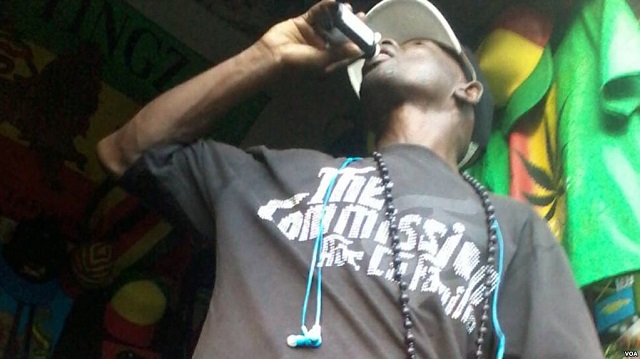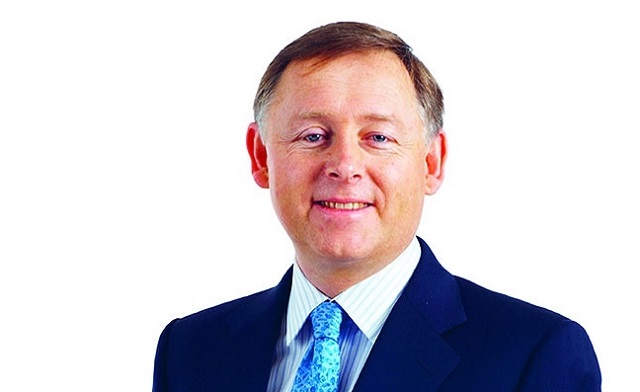Mental illness and substance abuse cause for concern

Sifelani Tsiko
Soaring numbers of people are being admitted to different psychiatric hospitals suffering from mental health problems due to growing levels of substance abuse, a study shows.
Ms Chido Rwafa, a psychiatrist who recently won the Medical Research Council of Zimbabwe (MRCZ) — Prof Jens Meikle prize for the best poster presentation that assessed the prevalence and factors associated with substance use among patients admitted to tertiary psychiatric units in Harare, says the emergence of new and deadly drugs is worrying.
Her research looked at the prevalence of substance abuse at the capital’s two major referral hospitals —Harare and Parirenyatwa Hospitals on 322 patients who were admitted to psychiatric units at the hospitals.
The study showed that there is a high prevalence of substance use and a high burden of substance related psychiatric conditions in psychiatric units in Zimbabwe with emergence of some psychoactive substances (cough syrups and illicit alcoholic beverages) that had not been previously reported on.
The use of these substances was associated with younger males living in high density areas and having a substance related primary diagnosis (the condition established after study to be chiefly responsible for the admission of the patient to the hospital for care).
“Substance abuse is now a major problem and it’s the major cause of admissions into the mental health institution in Harare,” Ms Rwafa says.
“We need to invest more into the development of our mental health care institutions. We need more treatment centres that are dedicated to addiction problems.”
The study shows alcohol abuse is the leading cause of mental disorders among people admitted to psychiatric hospitals.
Alcohol abuse accounted for 24 percent (illicit alcohol) and 56 percent (beer). After alcohol, the most commonly used substances include tobacco products (47 percent), cannabis (mbanje — 39 percent) and cough syrups (22 percent).
About 38 percent of patients had a World Health Organisation audit score greater than or equal to eight, indicating an alcohol use disorder.
Psychoactive drug use problems (DAST score greater than or equal to three) were found in 34 percent of the participants.
Health experts say a psychoactive drug, is any substance that, when taken, has an impact on thinking, mood or behaviour.
The drugs alter brain function resulting in temporary changes in perception, mood, consciousness and behaviour.
Fifty four percent of patients who consented to a urine test had a positive urine screen for cannabinoids, 44 percent had positive tests for benzodiazepines, 10 percent positive for opiates 0.9 percent for amphetamines and 0.3 percent for cocaine while 18 percent declined to have a urine screen.
Benzodiazepines, tobacco, alcohol, cannabis, amphetamines, ecstasy, cocaine, and heroin are part of the psychoactive drugs.
Other substances abused here in Zimbabwe include BronCleer commonly known as ‘Bronco”, Maragada, diazepam, “musombodhiya”, steriods, tegu-tegu and Zed.
Twenty percent of participants had no entry on substance use in their case notes and the substance use histories documented were poorly detailed, according to the study.
Zimbabwe’s Health and Child Care Ministry estimates that more than 1,3 million people suffer from mental disorders across the country.
Depression accounted for more than 40 percent of mental problems.
Health officials say drug and alcohol abuse are the major drivers of mental disorders at a time when the country is facing a serious shortage of mental health facilities and dwindling financial support for care institutions.
Shortages of essential drugs has also compounded the problem.
Ingutsheni Central Hospital in Bulawayo has an average in-patient population of 600 patients and a monthly out-patient population of 1 400.
Ngomahuru Psychiatric Hospital in Masvingo is reported to have about 300 patients, with 80 percent of them staying at the facility.
Mental health problems and substance abuse cause the most disability and poor health across the world, according to a report published in The Lancet in 2015.
Mental health services in Zimbabwe and most other African countries remain poorly developed and under-resourced.
This continues to play out despite the existence of well formulated mental health policy.
Zimbabwean psychiatrists say mental health continues to receive very little attention from the Government and is not high on the list of priorities for policy-makers.
“Mental health facilities are scarce even in both rural and urban areas,” says a Harare-based psychiatrist who declined to be named.
“There’s a chronic shortage of psychiatric doctors, nurses and other trained mental health professionals. Most qualified doctors are leaving the country in search of better pay and working conditions abroad.
“Working conditions and facilities need to be improved. Policy makers will not care about mental health issues until someone close to them is affected. That’s the only time they appreciate the role of psychiatric services to the nation.”
According to the WHO, approximately 450 million people worldwide suffer from a mental or behavioural disorder.
The United Nations recognises mental health as a human right essential for wellbeing and social development.
Despite this, psychiatrists say millions of people particularly in developing countries still lack access to basic mental health services.
“The stresses of life and battle to be successful, makes this group susceptible to anxiety and depression as well as drug and alcohol abuse,” says one renowned African psychiatrist in an online publication.
“Like many other African countries, a large proportion of Zimbabwean population still depends on alternative or ‘traditional’ medicine as their first port of call when ill.”
Ms Rwafa says there is a very real connection between mental health issues and alcohol abuse.
“People with mental health disorders try to sooth the uncomfortable symptoms of their condition by self-medicating with alcohol,” she says. “This often leads to more problems. We need more treatment centres as we grapple with rising cases of mental health problems.”
Psychiatrists bemoan that in many parts of Africa, mental illness is often seen as the work of an ‘evil spirit’ or a ‘curse’ that needs to be ‘prayed out,’ rather than medicated.
As a result, psychiatrists say, even if modern healthcare is provided to treat mental illness, it can be hard to get people to use it.
“People often come late for assistance; when they’ve tried faith and traditional healers,” says the Harare-based psychiatrist.
“More and more people are slowly seeing the value of seeking mental health services. I believe with rapid urbanisation, mental health care should take the centre stage otherwise the country will see an upsurge in violent crimes, abuse of drugs and murders.”
He says mental health services can be effective when people accept them and begin to use them.
At present, experts say beyond the suffering and absence of care, there is widespread stigma, shame, exclusion and death.
The road to rehabilitation and increased access to mental health care services is not easy.
“Eliminating an addiction from an individual is a complicated process and could be overwhelming,” writes Dr Sacrifice Chirisa, a psychiatrist at Parirenyatwa Hospital.
“However, with specialist direction and the right backing, the recovery process is a lot less terrifying and much more exhilarating with the passing of each day. Research has found that preventing adolescence use of drugs could be the best primary strategy aimed at preventing drug addiction.”
In 2014, Zimbabwe recorded 7 763 new mental health cases pushing the number of people suffering from mental health disorders to 91 390.
The Zimbabwe National Association of Mental Health says one in every four people in Zimbabwe is affected by mental health problems.
And the WHO estimates that by 2020, depression might be the second leading cause of disability worldwide. — Zimpapers Syndication.











Comments